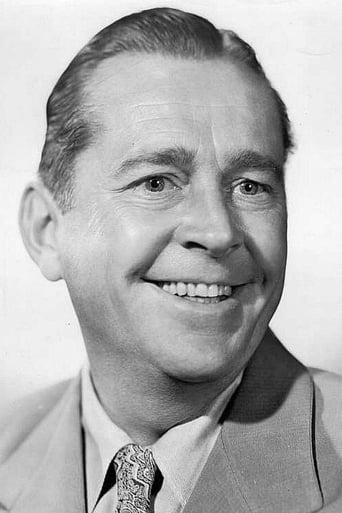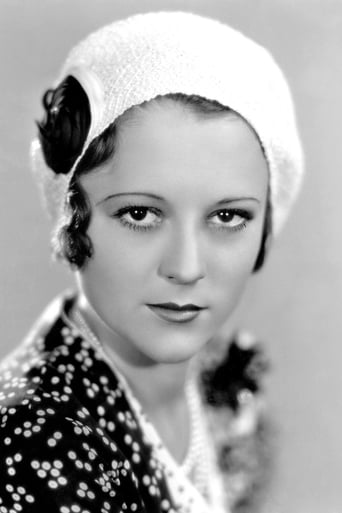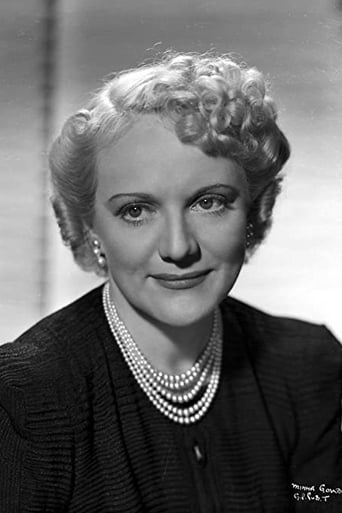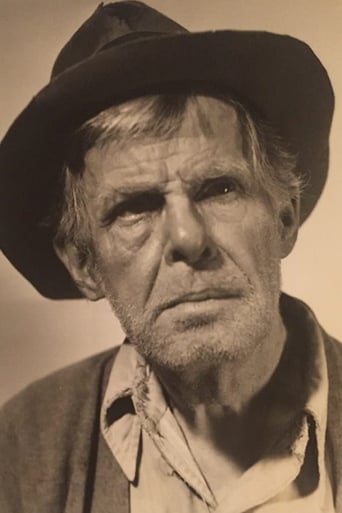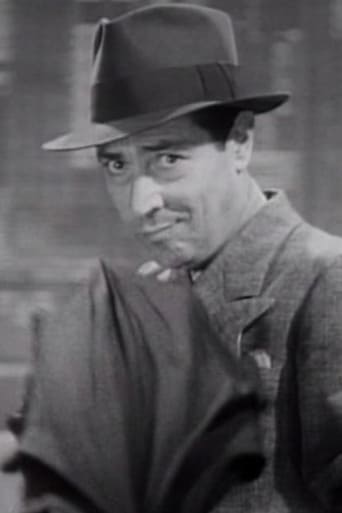Wordiezett
So much average
Claysaba
Excellent, Without a doubt!!
Chirphymium
It's entirely possible that sending the audience out feeling lousy was intentional
Arianna Moses
Let me be very fair here, this is not the best movie in my opinion. But, this movie is fun, it has purpose and is very enjoyable to watch.
JohnHowardReid
Producer: Frank Borzage. Copyright 18 July 1931 by Fox Film Corp. New York opening at the Roxy, 14 August 1931. 8,046 feet. 89 minutes.SYNOPSIS: A year in the lives of two young married people in New York's tenements. The movie has considerably changed both the plot and the title character of the stage play. "Bad Girl" is now a totally incorrect title. There is no "bad girl" in the picture.NOTES: Feature film debut of Broadway stage star, James Dunn. (He had previously appeared in five movie shorts).The Academy of Motion Picture Arts and Sciences selected Frank Borzage for Best Directing (defeating King Vidor's The Champ, and Josef von Sternberg's Shanghai Express), and Edwin Burke for Adapted Screenplay (defeating Sidney Howard's Arrowsmith, and Percy Heath and Samuel Hoffenstein's Dr Jekyll and Mr Hyde).Bad Girl was also nominated for Best Picture (defeated by Grand Hotel), and was placed 4th in The Film Daily poll of U.S. film critics (after Cimarron, Street Scene and Skippy). It was selected by The New York Times as one of the Ten Best Pictures of 1931. The stage play opened on Broadway at the Hudson on 2 October 1930 and ran a very moderately successful 85 performances. Sylvia Sidney played the title role, while Paul Kelly did the husband. Marion Gering directed.COMMENT: Frank Borzage was not only Hollywood's king of romance, but a superlative craftsman who could play on the strings of an audience's emotions like a master violinist. His own temperament echoed the image of a confirmed sentimentalist. A quiet man, Borzage (pronounced "Bore-zaig/ie", the "zaig" rhymes with "plague") never raised his voice on the set and never drew attention to himself. Untutored visitors always assumed he was a script clerk or continuity assistant.Yet any critic who writes a book on Romance in the Cinema will always place Borzage's name at the top of the list. He really believed in what he was doing. In fact, he persisted in his adoration for Romance even when it was out of fashion. In this instance, of course, the movie struck a timely chord with Depression audiences.Oddly, In the free-and-easy, pre-censorship Hollywood world of the early pre-code 1930s, Borzage and his very clever scriptwriters Edwin Burke and Rudolf Sieber cleaned up Delmar's play, changing characters and plot to an enormous extent, even though there was absolutely no pressure on them to do so. They succeeded in making Bad Girl far more romantic, if almost equally realistic. In fact, it's not the romance that seems artificial, but the occasional comic relief. In the stage play, the heroine, a little Bronx stenographer (Sylvia Sidney), is an unwed mother who is forced to marry a petty racketeer (Paul Kelly), whom she tries to reform.The film "version" bears only one vague relationship to the stage play, namely the fact that two young people get married and settle down in a New York apartment. Otherwise, it is completely different in every respect. Mordaunt Hall in his review in The New York Times even goes so far as to state that the "only adverse criticism" he could make of Bad Girl was "its strangely unsuitable title." He was being sarcastic, of course. He knew perfectly well how the title came about. He continues: "However, that is of small importance, for many a poor picture has boasted a good title."This must-see movie, is now available on a 10/10 Fox DVD set. In fact, I'd like to give this movie 10/10 also, but that deceptive title might annoy some people.
Rob-120
If there was ever a movie with a misleading title, this one is it. With the title, "Bad Girl," the fact that it's Pre-Code, and the movie poster showing a scantily-clad woman lounging in a chair with her arms raised, while a man leers suggestively over her shoulder – you think this movie is going to be about a woman of loose morals, like Jean Harlow or Marlene Dietrich.But it's not. Instead, it's a romantic melodrama that tells the story of a young married couple trying to make it through their first year of marriage during the Depression. Dorothy Haley (Sally Eiler) marries Eddie Collins (James Dunn), a tough talking "Noo Yawk" radio salesman, who is secretly a softie inside. In the movie's opening scenes, Dorothy is a streetwise dress model who easily parries the advances of men who make passes at her. But after she marries Eddie, she turns into an emotional girl with an overactive imagination. (When Eddie is late on their wedding day, Dorothy bursts into tears because she assumes he has deserted her.)Dorothy isn't really a "bad girl." She's just dumb as a box of rocks! Unfortunately, so is her husband. Eddie and Dorothy spend the movie trying to make each other happy, but they're both too stupid to realize they actually want the same things. This leads to an extended version of what Roger Ebert called the "Idiot Plot," where there are lame misunderstandings and the characters keep secrets from each other for no reason except that the plot requires it. If they would just tell each other those secrets, it would solve all their problems, but it would spoil the plot. It's called an "Idiot Plot" because the characters have to be idiots for it to work.Case in point. Soon after their marriage, Dorothy finds out she is pregnant. But Eddie has saved up $650 to open his own radio store. Not wanting him to spend his savings on her, Dorothy doesn't tell Eddie about the baby. Instead, she tells him she'd like to go back to work, to earn more money. From this, Eddie concludes she is unhappy living in their one-bedroom apartment. So he spends his $650 to buy them a big house and furniture, which Dorothy likes but didn't really want. Only then does she tell him she's pregnant.Now, this could have been handled as a variation on "The Gift of the Magi." But in the "Magi" story, the husband and wife actually learned something from their experience. Eddie and Dorothy learn nothing, and keep making the same dumb mistakes.Eddie and Dorothy each wrongly assume the other one doesn't want the baby, which results in more problems with their marriage. When Dorothy decides she needs an expensive doctor, Eddie tries to earn the money as a boxer. When he comes home with bandages on his face, Dorothy accuses him of going to a speakeasy and getting in a fight, instead of staying home with her. For some reason, Eddie doesn't tell her about the money he's won, or that he got her the doctor she wanted.(On a side note, the movie's one great scene is when Eddie steps into the ring with the Champ. He gets beaten up pretty bad and is about to go down when he whispers to the Champ that he needs the money because his wife is having a baby. The Champ says, "Well, why didn't ya say so? I got kids of my own!" He then literally carries Eddie around the ring for a few more rounds, all the time talking about his own kids.)If this story had been handled comically, it might have been a forerunner of "The Honeymooners" and "The Flintstones." (There were times when Eddie reminded me of Ralph Kramden.) Instead, we get a sappy romantic melodrama that is instantly forgettable.It's surprising that Frank Borzage won an Oscar for directing this claptrap, and that the lame screenplay won an Oscar as well. Borzage made better films than this (see "Seventh Heaven" and "Street Angel"), and there were better directed films released in 1931-32 (such as Charlie Chaplin's "City Lights," James Whale's "Frankenstein," William Wellman's "The Public Enemy," and Edmund Goulding's "Grand Hotel"). But AMPAS was young then, and young organizations are bound to make mistakes.
MartinHafer
Linked to many movies on IMDb are posters or pictures from the movie from which it came. However, in the case of "Bad Girl" you wonder if the artist ever saw the film or had any idea what the plot was! First, the figures on the poster look nothing like the actors (in particular, the guy is not anything like the 'everyman' James Dunn). Second, the poster makes the film look like a sex movie or at least one with a LOT of sexuality! But instead, it's just a nice Depression-era film about a nice couple who are trying to make a lives for themselves. And what it has to do with a bad girl is also anyone's guess!! Sally Eilers is a clothing model who is sick and tired of men always making passes at her or harassing her. So, when she meets Dunn and he is relatively indifferent to her, she is intrigued! Why won't he act like a boorish cad as well?! Eventually, the two begin dating and fall quickly in love. Surprisingly, the supposedly cynical Dunn asks her to marry him and seems happy with exactly the sort of life he said he didn't want. Then, when she becomes pregnant, she is worried, as Dunn wanted to start his own business and didn't want kids--but once again, what Dunn SAID he wanted and how he reacted are quite different and he likes the idea of kids and doesn't mind deferring his dream. Seeing the occasionally tough-acting Dunn show greater depth to his character was pretty enjoyable. There's more to the film, but it's probably best you see it for yourself.While the movie obviously was well-respected back in 1931 (as the director received an Oscar for his direction and it was nominated for Best Picture), it doesn't play quite as well today. This isn't to say it's a bad film--it just seems a little old fashioned and dated...but still very sweet. But despite its age, it is worth seeing and is a decent film--a good showcase for Dunn and a nice little romance.
kidboots
Mack Sennett once called Sally Eilers "the most beautiful brunette in Hollywood" and she was very eye catching, even in roles that didn't give her much to do. Then Frank Borzage started a hunt for a couple of unknowns for a film he was directing called "Bad Girl". Sylvia Sidney had starred in the original Broadway production which was an adaptation of a best selling book by Vina Delmar and ran for 85 performances in 1930. Borzage wanted to find a new romantic team to rival Janet Gaynor and Charles Farrell and originally he had wanted Spencer Tracy but he was unavailable. Sally was picked and for the male lead, a young, fresh faced actor from Broadway - James Dunn. For a film debut he had the ease and confidence of a veteran. He was sensational and should have been nominated for an Academy Award.This was not a typical "boy meets girl in the big city" romance. It had more in common with "The Crowd" although without "The Crowd"'s bleakness. When we first meet Dorothy (Sally Eilers) she is modeling bridal wear but she is not at all dewy eyed - she has all the answers and knows all the lines to keep the "wolves" at arms length. She meets Eddie (James Dunn) at Coney Island and while it definitely isn't "love at first sight", they end the evening in a heart to heart talk at the bottom of the stairs. Eddie is a rough diamond who claims he can't talk to women but somehow he seems to get on with Dorothy. Their's is a bitter sweet romance - it's real and something the audiences of the day could probably relate to. They marry and Eddie can see his long cherished dream of owning his own radio shop within his grasp. Sally has some news of her own - and after Eddie has a tirade about the stupidity of bringing a child into a world of poverty - confesses she is going to have a baby.The rest of the film is concerned with mistaken feelings. Eddie thinks Sally is not keen to have a child but she is only trying to hide her joy because of his gruffness. Inside he is tickled to death and often stops parents with prams in the street to ask their advice, he is also working overtime and risking his life doing amateur boxing to get Dorothy the best possible care. She doesn't know and thinks he is spending his time in bars and getting into fights. In one of the most heart wrenching scenes, James Dunn plays with all the emotion he can muster, trying to convince a society doctor to deliver Dorothy's baby. And for once a friend wasn't just part of the furniture. Minna Gombell was great as Edna, Dorothy's best friend and mentor. It was a 3 dimensional part - Edna was hard boiled and tough but astute enough to realise that Eddie was a genuine guy.This role should have made Sally a star but it didn't. She and Dunn were paired several times but she became fed up and apparently refused to do "Jimmy and Sally" with him (Claire Trevor was substituted). James Dunn became an overnight star. He was extremely likable and also had a warmth and talent that both critics and the public liked.Highly, Highly Recommended.
